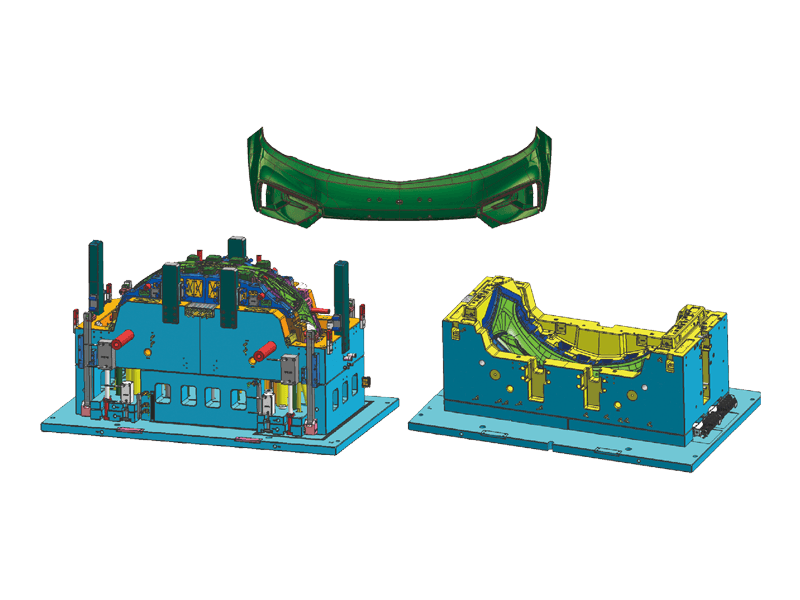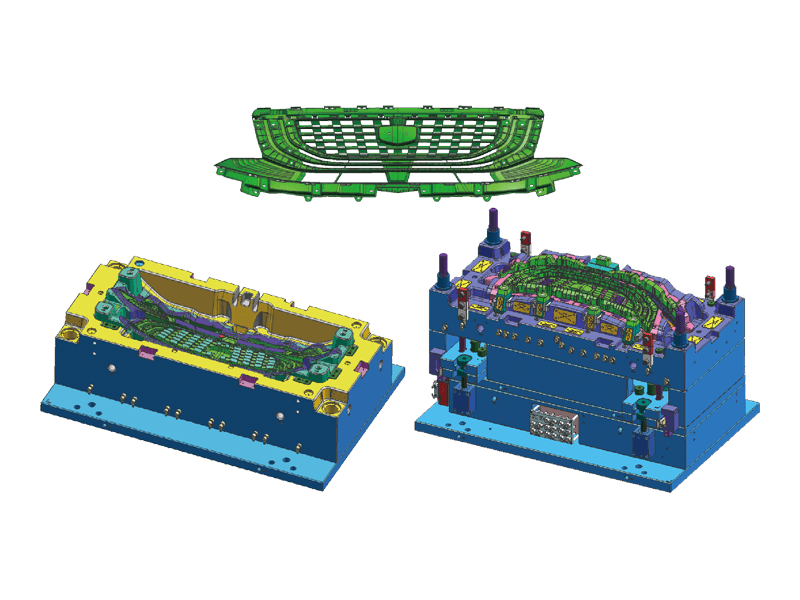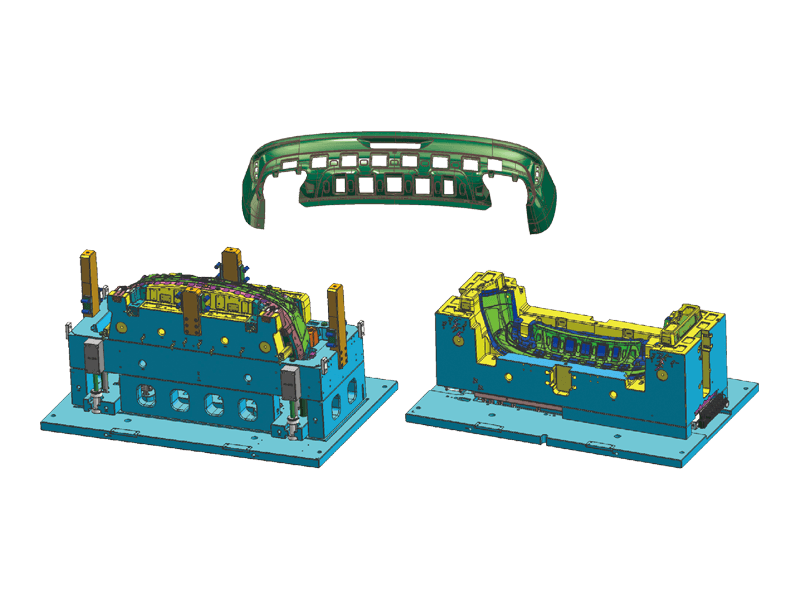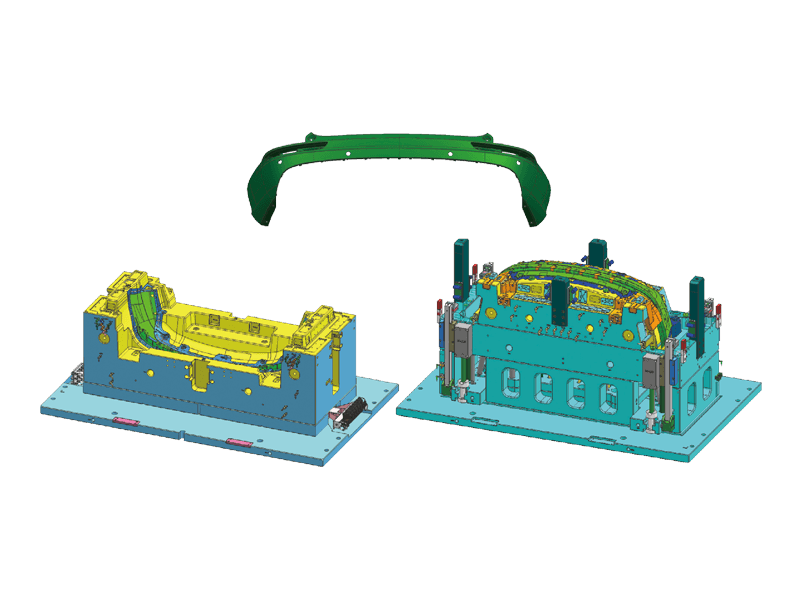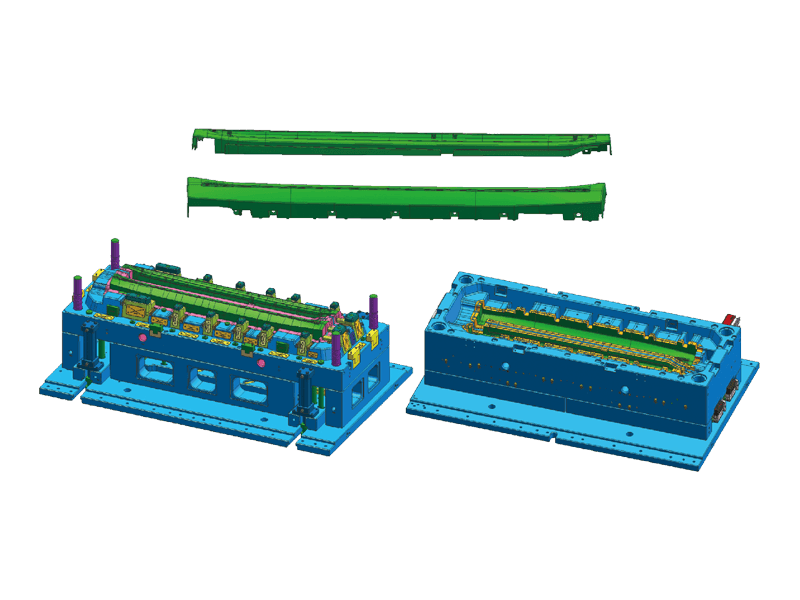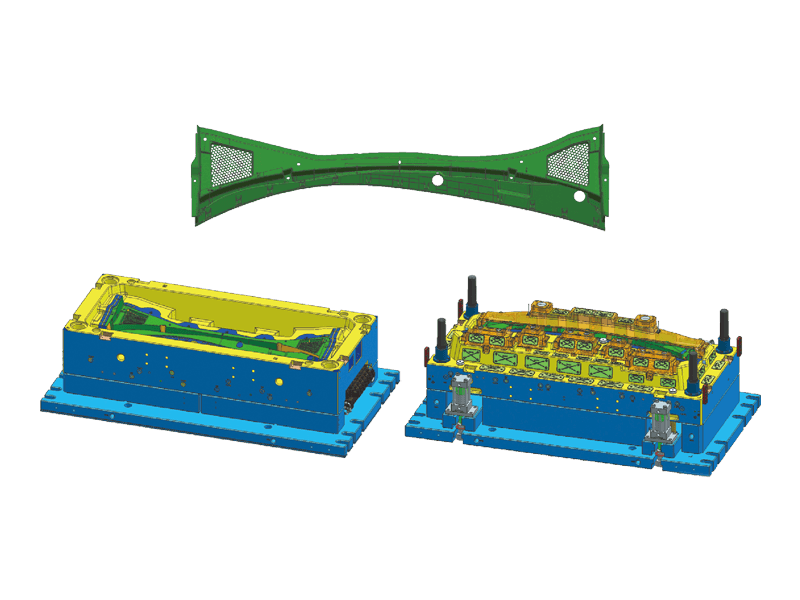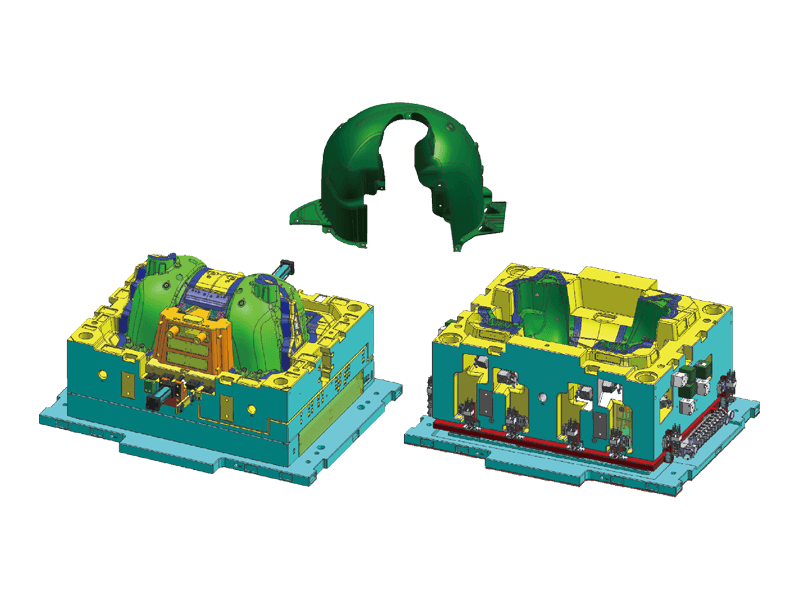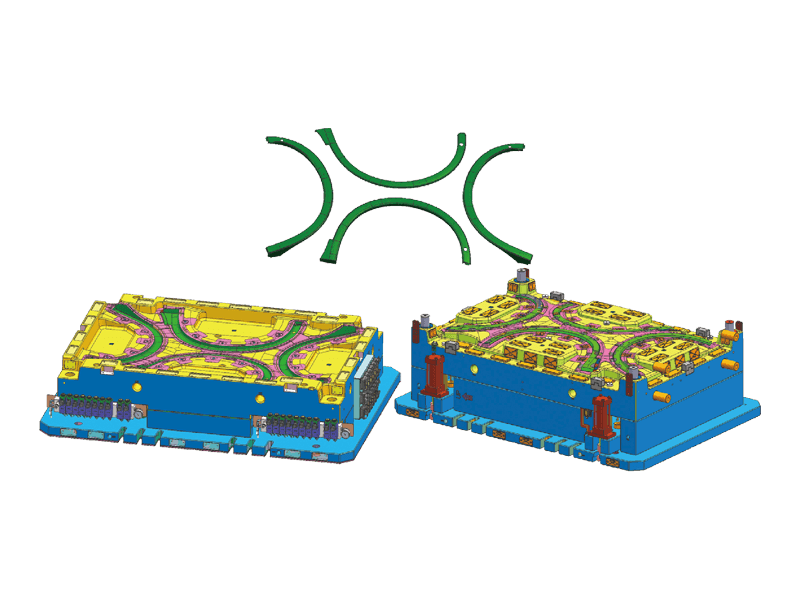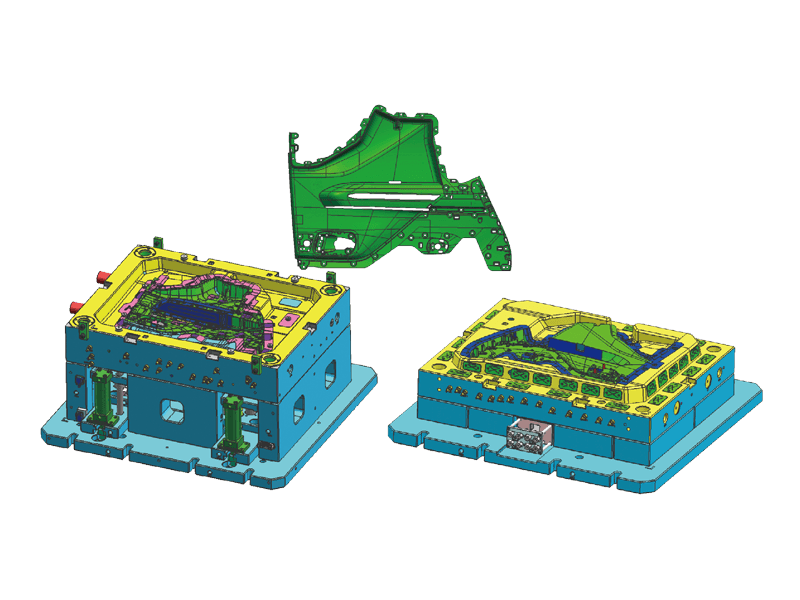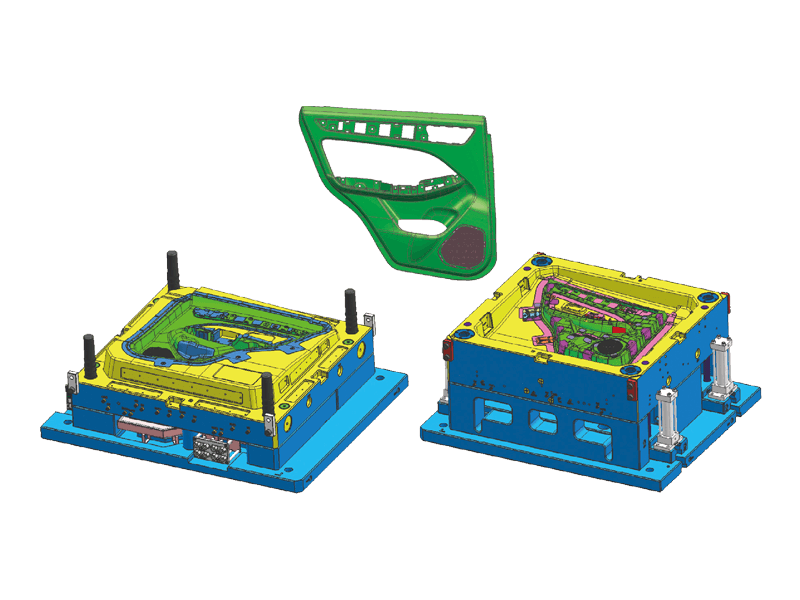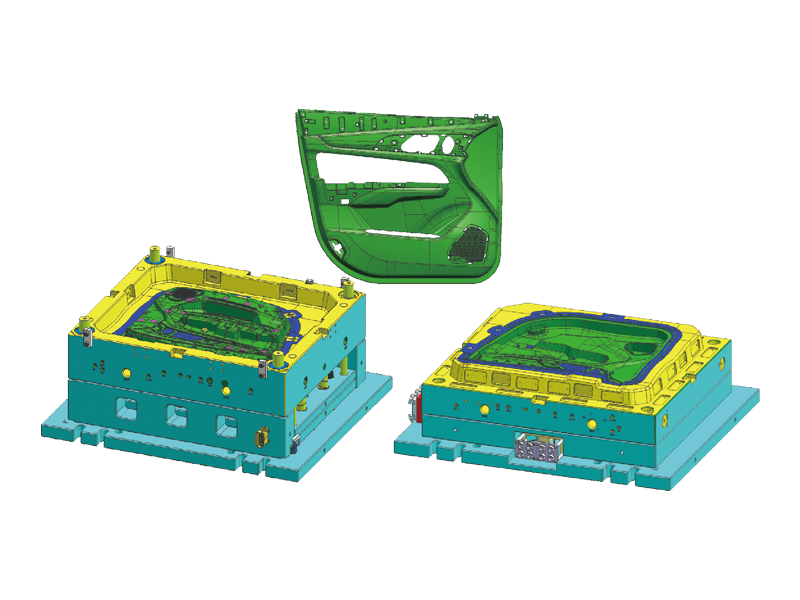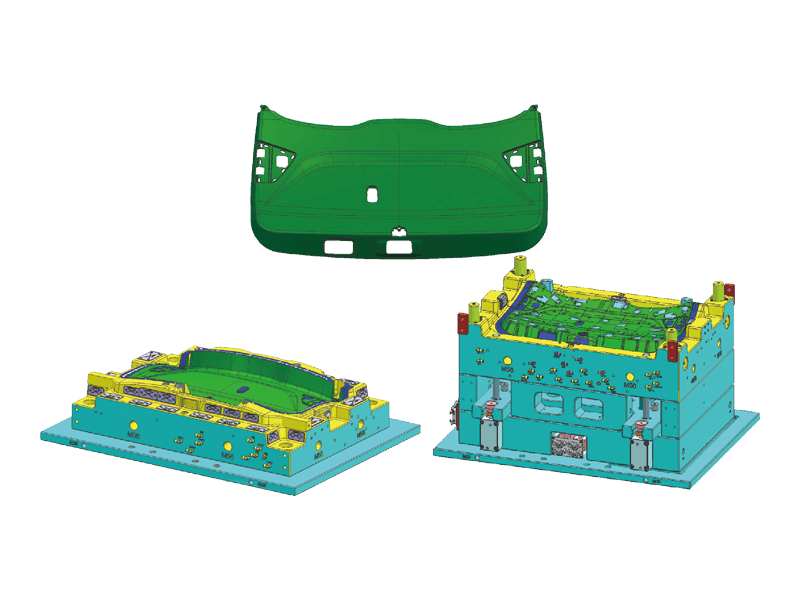The evolution of automotive design has been marked by continuous innovation, particularly in the area of interior components. Among the key technologies driving this progress is Plastic Instrument Panel Injection Molding, a process that has become essential in the production of vehicle dashboards and control panels. As manufacturers strive to enhance the functionality, safety, and aesthetics of their vehicles, Plastic Instrument Panel Injection Molding plays a crucial role in meeting these goals, offering precision, durability, and design versatility.
Plastic Instrument Panel Injection Molding is the process used to create the instrument panels that are central to a vehicle’s dashboard. These panels house critical controls, displays, and other components that are vital to the driver’s interaction with the vehicle. The importance of these panels cannot be overstated; they must be durable enough to withstand daily use, precise in their fit and finish, and flexible enough in design to accommodate the latest technological advancements.
One of the primary benefits of Plastic Instrument Panel Injection Molding is its ability to produce parts with exceptional precision. This is crucial in the automotive industry, where even slight imperfections can impact the functionality and appearance of a vehicle's interior. With Plastic Instrument Panel Injection Molding, manufacturers can ensure that every component meets exact specifications, to consistent quality across all units produced. This precision is particularly important as vehicles become increasingly complex, with more controls, displays, and integrated technology requiring precise placement and alignment within the instrument panel.
Durability is another significant advantage of Plastic Instrument Panel Injection Molding. The materials used in this process, typically high-grade thermoplastics, are selected for their strength and resilience. These materials are designed to endure the wear and tear of everyday use, including exposure to UV rays, temperature fluctuations, and the physical demands of frequent handling. As a result, instrument panels produced through Plastic Instrument Panel Injection Molding are built to last, ensuring that they remain functional and aesthetically pleasing throughout the vehicle’s lifespan.
The versatility of Plastic Instrument Panel Injection Molding also allows for a wide range of design possibilities. Automotive designers can create instrument panels that are not only functional but also visually appealing, with smooth lines, ergonomic layouts, and the ability to incorporate various textures and finishes. This flexibility is essential in an industry where consumer preferences and technological trends are constantly evolving. With Plastic Instrument Panel Injection Molding, manufacturers can quickly adapt to these changes, introducing new designs that meet the latest market demands without compromising on quality or performance.
Efficiency is a key factor in the appeal of Plastic Instrument Panel Injection Molding. The process is highly automated, enabling the rapid production of large quantities of instrument panels. This speed is particularly important in the automotive industry, where meeting production deadlines is critical to maintaining a competitive edge. By using Plastic Instrument Panel Injection Molding, manufacturers can produce high-quality panels quickly and cost-effectively, ensuring that vehicles are ready for market in a timely manner.
In addition to its efficiency, Plastic Instrument Panel Injection Molding supports sustainable manufacturing practices. The precision of the process minimizes material waste, reducing the environmental impact of production. Moreover, the ability to use recyclable thermoplastics in the molding process further enhances the sustainability of automotive manufacturing. As environmental concerns continue to shape industry standards, the use of Plastic Instrument Panel Injection Molding helps manufacturers meet these demands while maintaining high levels of quality and performance.
Manufacturers who have embraced Plastic Instrument Panel Injection Molding are seeing significant benefits in terms of both product quality and production efficiency. The ability to produce durable, precisely engineered instrument panels that meet the standards of safety and aesthetics gives these manufacturers a distinct advantage in a competitive market. Furthermore, the cost savings associated with reduced waste and efficient production processes contribute to the overall profitability of automotive manufacturing operations.


 English
English 中文简体
中文简体